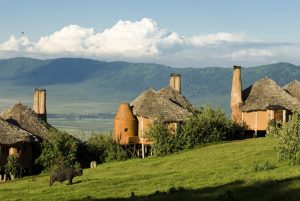Challenges of Climbing Mount Kilimanjaro
Mount Kilimanjaro, the highest peak in Africa, stands tall at 19,341 feet above sea level and is a popular destination for adventurers seeking a challenging climb. While the climb to the summit of Kilimanjaro is not a technical one, it presents its own set of challenges that climbers must be prepared to face. In this article, we will discuss the physical demands of climbing Mount Kilimanjaro and how to overcome altitude sickness.
Understanding the Physical Demands
Climbing Mount Kilimanjaro is a physically demanding endeavor that requires a good level of fitness and endurance. The trek to the summit usually takes between 5 to 9 days, depending on the chosen route, and climbers can expect to hike for several hours each day. The terrain varies from lush rainforest to rocky slopes and icy glaciers, making each day’s trek a unique challenge.
To prepare for the physical demands of climbing Kilimanjaro, climbers should engage in regular cardiovascular exercise, strength training, and hiking to build up their endurance and muscle strength. It is also important to acclimatize to the altitude by spending a few days at high altitude before attempting the climb. This will help reduce the risk of altitude sickness and improve overall performance on the mountain.
Sunset Africa Safari offers guided tours to Mount Kilimanjaro, with experienced guides who are knowledgeable about the mountain and its challenges. For booking requests, clients can contact info@sunsetafricasafari.com.
Overcoming Altitude Sickness
Altitude sickness, also known as acute mountain sickness (AMS), is a common challenge faced by climbers attempting to reach the summit of Mount Kilimanjaro. It is caused by the decreased oxygen levels at high altitudes and can manifest in symptoms such as headache, nausea, dizziness, and fatigue.
To overcome altitude sickness, climbers should take their time ascending the mountain and allow their bodies to acclimatize to the altitude. It is recommended to drink plenty of water, eat a high-carbohydrate diet, and avoid alcohol and tobacco, as these can worsen the symptoms of AMS.
Sunset Africa Safari’s guided tours to Mount Kilimanjaro include a carefully planned itinerary that allows for gradual acclimatization to the altitude. Experienced guides monitor climbers for signs of altitude sickness and provide necessary support and guidance to ensure a safe ascent.
In conclusion, climbing Mount Kilimanjaro is a challenging but rewarding experience that requires careful preparation and planning. By understanding the physical demands of the climb and taking steps to overcome altitude sickness, climbers can increase their chances of reaching the summit successfully. For those looking to embark on this adventure, Sunset Africa Safari offers guided tours to Mount Kilimanjaro that provide a safe and enjoyable climbing experience. For booking requests, please contact info@sunsetafricasafari.com.


